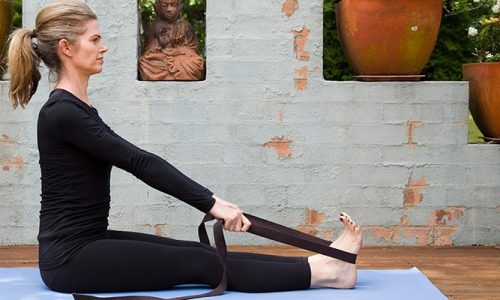Is Pilates a good way to help manage mobility and walking in MS?
We know how empowering it can feel to take control of certain aspects of your life when you’ve been diagnosed with MS. Naturally, one of those things is your fitness routine. Time and again we hear of people finding a new passion for something they’d never tried – maybe it’s the accomplishment of a new challenge – and then again, others strengthen the base they’ve built.
Pilates is certainly one of those fitness activities and has always been considered a huge area of interest in researching suitable and beneficial physical activities for people living with MS. Whilst there is no clear evidence as yet that one particular form of exercise is better than another or exactly how much exercise is enough, we do know that physical activity and exercise is an important component for people to manage their MS and improve quality of life.
A randomised clinical trial has tested whether Pilates – that focuses on controlled movements and targets core muscles – is beneficial for people with MS.
What is Pilates?
Since the early 20th century, when Joseph Pilates created this physical fitness regimen, Pilates has become a popular activity. The modality’s original intention was as a rehabilitation programme for injured servicemen and focuses on using fewer, more precise movements, requiring control and technique over increased repetition. In fact, Joseph Pilates believed that mental and physical health were essential to one another, and hence created a method of total body conditioning. Pilates uses correct alignment, centering, concentration, control, precision, breathing, and flowing movement (the Pilates principles) to establish a perfect working body from the inside out.
Why Pilates for people with MS and is it safe?
“In the randomised trial, the people with MS who attended Pilates classes had a 15% improvement in the distance that they could walk and also increased their functional mobility,” explained Dr Julia Morahan, Head of Research for MS Research Australia. “And while the functional changes were small, they could make an important difference for people with MS in their daily life.”
“Often, people with MS are unsure as to whether particular types of exercise are safe to do,” said Dr Morahan. “This clinical trial included people with all types of MS, at different levels of severity, and people who had had relapses within the last 30 days as well as people whose disease was more stable.”
This type of research is important to show that Pilates is a safe and effective form of exercise for people with MS. Other types of exercise have also been shown to be helpful for people with MS. Finding a type of exercise that is enjoyable and something they can stick with is a really important factor to keep everyone, not just people with MS, engaged in physical activity. This research adds Pilates to the list of possibilities to help people with MS maintain overall health and contribute to managing the symptoms of MS.
What’s the evidence?
The clinical trial tested whether people with MS who attended a Pilates class twice a week over three months made improvements in walking and mobility. Published in the International Journal of MS Care, 30 people with MS took part in the study and either attended Pilates classes and received a therapeutic massage or received the massage therapy alone. The researchers then tested whether Pilates made a difference to a variety of outcomes including walking performance, functional ability, balance, flexibility, body composition, core endurance and quadriceps (thigh) muscle strength.
They improved their ability to perform the ‘timed up and go’ test. In this test, participants stand from a seated position, walk three metres, turn around and sit back down. The researchers suggest that these physical improvements are likely to be due to the Pilates exercises tested, which focus on improving gait and maintaining alignment. Other outcomes, such as balance, flexibility, muscle strength and body composition were not improved.
More resources:
- Pilates can help with mobility and walking in MS (MS Research Australia)
- Yoga and MS (National MS Society – United States)
- Yoga helps body and mind for people with MS (MS Trust – United Kingdom)





